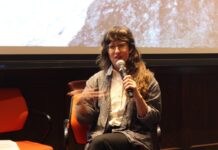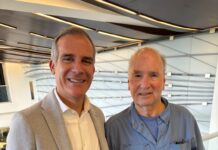In recent years, many students, professors and faculty at Occidental have expressed confusion with how The Occidental operates. Potential sources are reluctant to speak on the record. Occasionally, someone we interview takes issue with how stories portray them, saying the reporter took their words out of context or failed to adequately represent their side of the issue. Students take issue with the paper giving administrators a platform; just as often, administrators complain that we report students’ negative quotes about them. In the interest of transparency and building trust between The Occidental and the Occidental community, we would like to explain the process and the ethics behind our journalism.
College newspapers have an intimate relationship with the community they serve. The Occidental has a staff of almost 90 students, and we report to at times a 4,000-person readership. Most often, we are the only news source reporting on the happenings of our campus. It’s difficult to report on our peers, teachers and administrators, but as reporters, our primary concern is the reader. We work with reporters consistently to push them to find all sides of an argument and give all parties an equal say, as much as the parties will engage with the reporter.
Our most frequent complaint is that an article has only represented one side of the story. When investigating stories, reporters reach out to as many relevant parties as they can find, and we publish quotes from those who respond. Those who do not respond give up an opportunity to publicize their thoughts. Reporters can only write what people tell them.
Some sources who do talk to reporters are upset to find other sources’ contrary ideas or accounts in published stories. Our reporters aim to represent all sides of an issue. We do, however, try to avoid false equivalencies. For example, stories about climate change don’t require an interview with a climate change denier. Scientific evidence only supports that the average global temperature has risen over the last century, and we must be careful to highlight that. Many on-campus issues, however, rely on points of view rather than fact, so reporters must present as many sides as possible — excluding only provable lies.
An essential part of fair reporting is access to sources who can inform and support our articles. Understandably, sources are wary to engage with the media; some fear their quotes will be taken out of context, and others are reluctant to have their name associated with controversy. Still, on-the-record sources are a non-negotiable part of our reporting process. We only offer anonymity to people who could lose their jobs or become personally endangered. Every interview must be recorded, and we always get the interviewee’s verbal consent to be recorded and interviewed. We ask them to give their full side of the story and we push them to explain themselves.
After a reporter conducts an interview, they transcribe it and select certain quotes that best encapsulate the overall message of the interviewee. This is one of the most difficult and time-consuming parts of the writing process and something we teach our writers to do seriously and deliberately. Given that most articles are only 800 words, writers only have so much liberty in selecting quotes, and there are certain guidelines they have to follow. Our intentions with selecting quotes are never to make anyone look unfavorable or to remove important context, although we know these unintended consequences have occurred in the past. We try to make the article as readable, accurate and concise as possible.
When piecing together interviews and data into a draft, both editors and writers tend to think of their work as “objective.” It’s a word thrown around constantly in journalism, and it tends to be a pillar of many news publications. It’s also an unattainable ideal. Objectivity is not something that is actually possible, given that the writer is choosing specific quotes and people to interview, the editor is choosing certain stories to run and writers to write, and the senior staff is choosing people to hire and orchestrating the cohesion of each issue. Despite the impossibility of objectivity, we strive for fairness.
Though people are inherently biased, we at The Occidental uphold a standard of objectivity because our goal is to present politically objective information to our readership. Through acknowledging our own biases and taking meticulous care to avoid conflicts of interest in reporting and editing, we strive to remain fair and honest as journalists and inform rather than persuade. Our goal is to produce accurate and balanced news, and though we do not always succeed, we constantly strive to improve.
![]()































